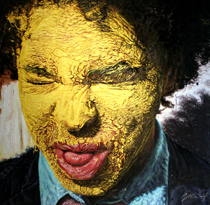Colourless Green Ideas Sleep Furiously
by Mark Frutkin,
Toronto, Ontario
Quattro Books, 110 pp.
Prolific and multi-genre writer Mark Frutkin rummages around in his extensive knowledge of language and treats readers with Colourless Green Ideas Sleep Furiously, a small dense collection of mini-essays or thought-pieces. Most are less than a page long, and the title (from Noam Chomsky) clues readers into the experimentation that Frutkin indulges in with lovely results.
As Frutkin notes, Chomsky used the words to show how something can look like English but be meaningless. The poet in Frutkin has pounced on that view and given an alternative: “For me, however, the phrase is a concise and poetic definition for dreaming.†I’d add that it could also be poetry as it explodes language and sends thoughts off in many enticing directions.
Essentially, Frutkin’s collection offers numerous imaginative starting blocks. These pages really do feed the mind and heart, and for those fascinated by language and poetry and story and literature in general, well, Frutkin’s pieces nudge the fascination all over the place. In “The story,†for example, Frutkin pays homage to literature while elevating its status: “I do not believe that literature can make a difference. I believe literature is the difference. The stories we tell not only reflect our lives but embody those lives in that they define our myths. We are living the story.†This piece has only two more sentences and is an excellent example of what Frutkin does in the book.
A few more samples will illustrate the pleasure Frutkin has in words and the pleasure he passes along. In “Gutenberg’s winepress,†another extremely short piece, Frutkin remarks: “It was no mistake that Gutenberg’s first printing press was adapted from a winepress. One must squeeze the words to their utmost in order to extract the poetry from them.†And this page starts with a commentary about the minimalism and richness of haiku.
In “Charming chaos,†one of the longer offerings (slightly more than a page), Frutkin muses on language as a tool, the habitual use of language, the need to recognize that a view of reality “is based on cultural agreement,†the creation of alternate worlds, and the melding of myth and reality. It’s remarkable how much punch he packs in a few words, so it’s crucial to take time to read this slim volume to savour the bits in the same way one should dip in and pause when reading poetry.
In “Alphabetization,†Frutkin discusses the shift from religious importance of text to alphabetization in library organization, and how systems create or destroy hierarchies. And several of the mini-essays take on a specific letter of the alphabet and explore image, sound and meaning.
Whether or not readers agree with Frutkin’s observations is not the point. This man exhibits a raging curiosity that is delightfully infectious. And his skill with language is also a deep pleasure, along with the content of his pages.





No Comments so far ↓
There are no comments yet...Kick things off by filling out the form below.